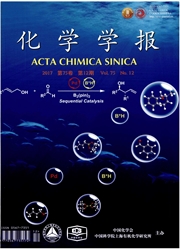

 中文摘要:
中文摘要:
二硫化钼(MoS2)作为一种与石墨烯具有类似结构的材料,近些年来受到了科学家们的越来越多的关注.它凭借自身的层状结构,独特的电子学、电化学性质,大的比表面积以及表面改性的潜能,在许多领域都有着广泛的应用.本文简单论述了目前纳米尺寸MoS2的制备方法,包括微机械剥离、液相剥离、嵌锂法、水热反应、气相沉积以及热分解法等,并对这些方法在制备纳米MoS2中具备的优点和存在的不足作了简单点评.另外,介绍了纳米MoS2在光电子器件、催化、传感、能量存储与转化等领域的应用研究进展,并着重介绍了其在电化学和生物传感分析方面的应用研究现状,并对未来纳米MoS2的重点研究方向作出了展望.从目前的研究来看,纳米MoS2在器件、能量存储和传感分析等应用方面存在着巨大的潜质,有望成为一种继石墨烯之后性能十分优良的多功能材料.
 英文摘要:
英文摘要:
In recent years, molybdenum disulfide (MoS2), as a material that shows analogous structure to graphene, has at- tracted more and more attentions of scientists. Due to its layered structure, special electronic and electrochemical properties, large specific surface area and the potential of surface modification, nano-sized MoS2 is widely used in many fields. In this review, the authors introduce several preparation methods of nano-sized MoS2, mainly including micromechanical cleavage, liquid exfoliation, lithium intercalation, hydrothermal reaction, vapor deposition and thermal decomposition. All these meth- ods possess their own advantages, but at present, there is no good ways to achieve the large-scale production of large-area MoS2 nanosheets with controllable layer number or MoS2 nano-architectures with controllable shape. Apart from the prepara- tion methods, the authors mainly introduce the research progress on the application of nano-sized MoS2 in the fields of opto- electronic devices, catalysis, sensing, energy storage and conversion, and stress the research status of the application in the aspects of electrochemistry and biosensing analysis. In addition, the development direction of nano-sized MoS2 in the future is also been pointed out. According to the present researches, nano-sized MoS2 possesses enormous potential in the fields of energy storage and conversion, sensing analysis, and devices, etc., and it may become a kind of multi-functional material with excellent performance in the wake of graphene.
 同期刊论文项目
同期刊论文项目
 同项目期刊论文
同项目期刊论文
 期刊信息
期刊信息
